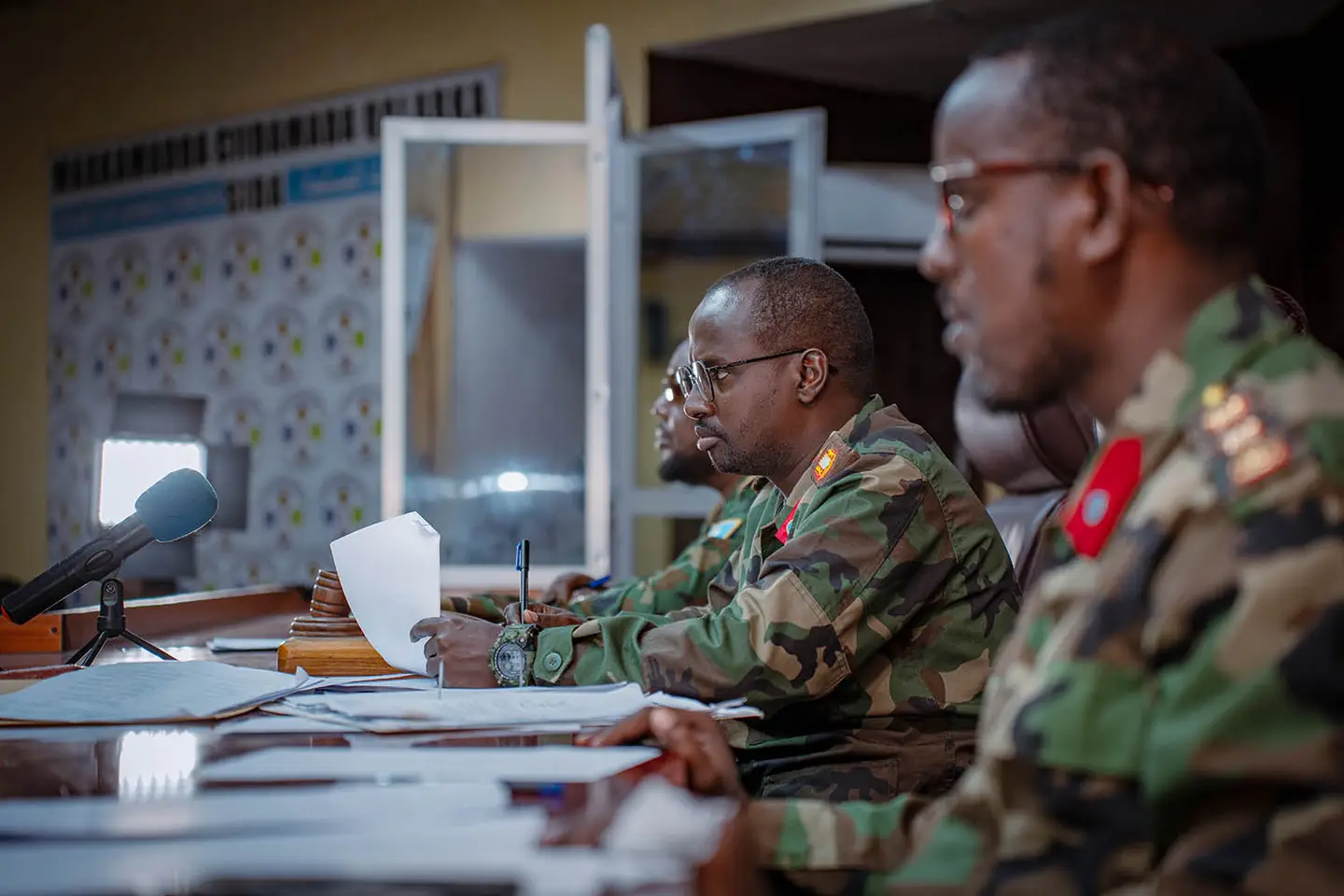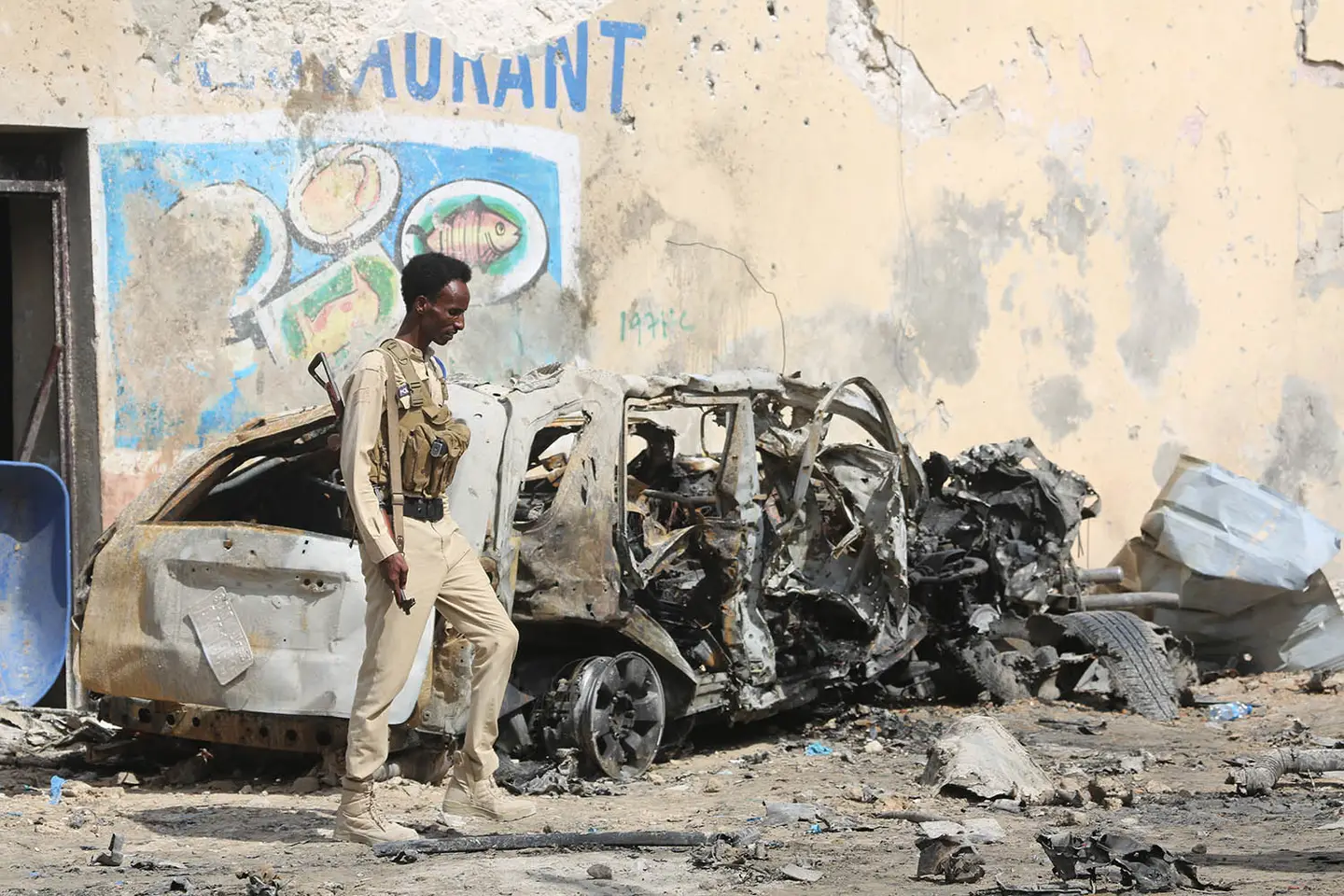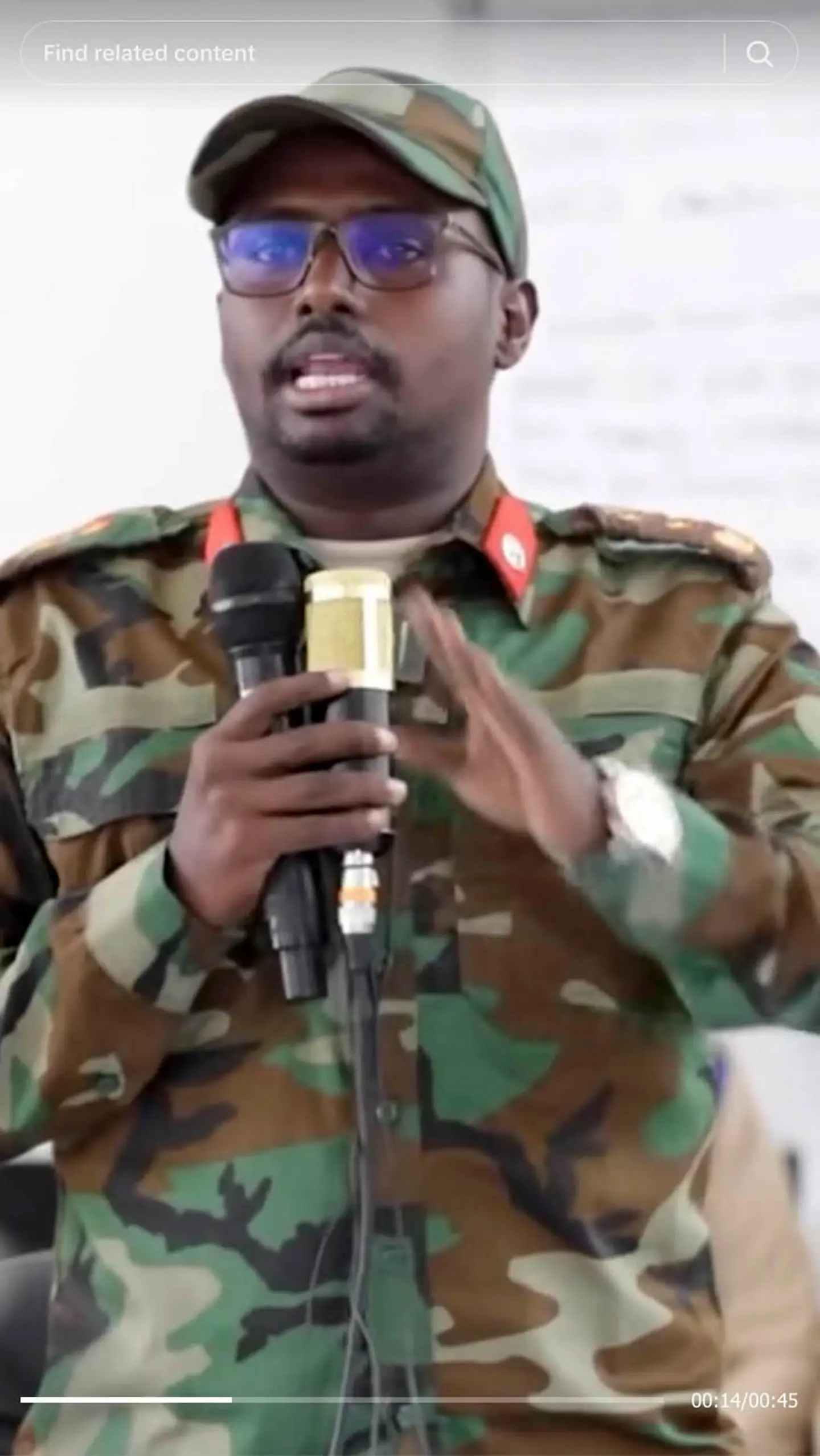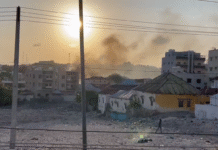Sharing court clips with his 1.5m followers has made Hassan Ali Nur Shuute Somalia’s leading influencer
 In a courtroom in Mogadishu, three members of al-Shabaab’s suicide bombing division were on trial, accused of planning to bomb the city’s Doorbin hotel.
In a courtroom in Mogadishu, three members of al-Shabaab’s suicide bombing division were on trial, accused of planning to bomb the city’s Doorbin hotel.
Over several trials, spanning an 11 month investigation, Colonel Hassan Ali Nur Shuute, a military judge in his late 30s known for his contemplative yet fiery line of questioning, carefully examined the evidence and pulled apart their defences. One defendant eventually cracked. “My aim is to attack the court you are standing in, and all it represents,” he declared, with icy confidence. “My attack was directed at the followers of the infidels.”
The trial earlier this year didn’t just play out in the courtroom – filmed by Somali TV outlets, it was also chopped up into bite-size clips by Shuute’s military press team, who posted highlights to his TikTok feed and its 1.5 million followers.
Somali TikTok is both silly and deeply serious. It is part soap opera, part compelling drama – a testament to the creativity of social media users. Feeds are populated with everything from reality-style videos of lovers’ spats to opposing clans trading insults for money. But one of the country’s leading influencers is arguably Shuute, whose videos from inside the courtroom offer unique access into the country’s war on terror, streamed directly on Somali smartphones.
One day, he might be questioning a market woman on trial for being caught with explosives concealed in her produce. The next it’s al-Shabaab assassins linked to high-profile murders of government officials.
For Shuute, the war on terror is best fought in the courtroom, which he describes as “the true frontline in the battle for the rule of law”.
Somalia is at a crossroads. There is a level of political stability that hasn’t existed since the start of the civil war in 1991 and the capital is undergoing rapid transformation and growth, due to a rising number of the diaspora returning and investing in the nation. Cranes pepper the Mogadishu skyline amid new construction, with tall buildings beaming into the sky.

The aftermath of an attack in Mogadishu near the presidential palace in September 2024
But while the government controls the capital, al-Shabaab – an al-Qaida-affiliated terror group that has operated in Somalia for two decades – continues to carry out attacks across the country.
Shuute’s online trials have lifted the veil on al-Shabaab, an organisation that has for years remained shadowy and unknown. Posting clips from them has been Shuute’s attempt to expose its operations, demystify the group and build public confidence in the Somali court system.
‘Terrorist groups use social media to show power. We use it to show their real end: in a courtroom’
Hassan Ali Nur Shuute
“The reason is one simple word: transparency,” Shuute said in a phone interview from Mogadishu. “Show the Somali people – and the world – exactly how justice works. I want them to see the evidence, hear the arguments, and see the final decision. I think what makes this different is that it is direct and honest.”
Part of the reason for Shuute’s popularity is his “elegant use of Somali language and storytelling techniques,” said Ayaan Abukar, a Somali-Dutch author who has written extensively on Somali digital culture and history.
“He is very interesting to watch. You will never get bored. It’s not just, ‘Oh you committed a crime, you are going to jail.’ There is a whole story being expressed that he sets up. Starting with his questions: ‘What did you do? What was your motivation? What do you think about this now?’”
For Abukar, Shuute’s questioning parallels the “natural storytelling techniques” inherent in Somali culture, which stem from the nation’s oral culture, where poetry, songs and stories have been used for generations to pass down history and knowledge.
Security in Mogadishu has improved greatly in recent years, but the fear of al-Shabaab attacks remains high. “Watching [the trials] live on your TVs and smartphones is fascinating and it offers a sense of justice, but at the same time, everyone realises that this is a part of the seriousness of life in Mogadishu.”
Despite Shuute’s popularity, Human Rights Watch has voiced concerns about the legitimacy of the trials, noting that the military does not have the legal authority to try civilians with alleged links to terrorist groups, as the court’s jurisdiction is limited to members of the armed forces. Lack of adequate due process was highlighted, with human rights lawyers questioning the reliability of confessions obtained while suspects were in the custody of intelligence services and their limited access to legal counsel.
Shuute said defendants had “full access” to legal counsel and said the Somali parliament had passed laws enabling “civilians linked to terrorist acts to be tried in our courts.”
And he remains a heroic figure to many Somalis, who hunger for peace and security. Like so many Somalis over the past 35 years, Shuute has lost family members to the country’s many overlapping wars.
His father was assassinated after Shuute’s trial of the man who masterminded the devastating truck bomb attack in Mogadishu in 2017 that killed at least 587 people.
“My father was not a government worker. He was a civilian, a respected elder. On the day he was killed, he had come to my home. He was deeply worried and advised me to stop my work, calling it too risky. He wanted me to go abroad to pursue my postgraduate studies and promised he would take care of my family while I was away. I listened, but I told him that my duty to my country came first,” Shuute said.
Two hours later, his father was shot dead by two al-Shabaab fighters. If the assassination was an attempt to silence Shuute, it failed. “It made the fight against these dark forces not just a duty, but a sacred responsibility to ensure other families do not suffer as mine did,” he said.
Shuute believes that while his cases can be dark, they can help deter the next generation from joining the group.
“Terrorist groups use social media to show their power and to look heroic. We use it to show their real end: in a courtroom, exposed, and held accountable by the law,” he said. “We fight their propaganda with truth; we show that law is present.”
Photographs by Mahamud Utaama for The Observer and Abuukar Mohamed Muhidin/Anadolu












